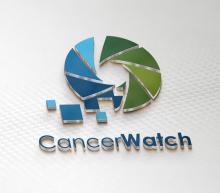Who we work with
Collaboration is at the heart of NCRI’s mission to improve cancer outcomes. NCRI believes in collaborative relationships and integrated working within the health and research sectors. It recognises that tackling the complexities of cancer requires a united effort from diverse stakeholders.
Key stakeholder groups NCRI works with
Some examples of the stakeholders are listed in the table below. The ordering of the list does not imply importance. This list is non-exhaustive.
| Stakeholder Group | Including |
|---|---|
| Cancer Community | Patients and their Families, Patient Advocates, Experts by Experience, Survivors, Supporter Groups, Caregivers |
| Cancer Advocacy Groups | Irish Cancer Society, Breakthrough Cancer, Marie Keating Foundation |
| Patient Advocacy Groups | Irish Hospice Foundation, Patient Voice in Cancer, PPI Ignite Network, Patient Consultant Committees |
| Stakeholder Group | Including |
|---|---|
| Pharma | Irish Pharmaceutical Health Care Association |
| Stakeholder Group | Including |
|---|---|
| Academic/Research Institutes | Universities and Research Bodies |
| Agencies and Groups | National and International Cancer Registries, Cancer Registry Networks, International Research Agencies. International Health Organisations, Healthcare and Medical Societies |
| Clinical | Nursing Groups, Medical Organisations, Cancer Trial Groups |
| Government Departments | Department of Health - Cancer Policy Unit, Health Analytics, Healthy Ireland, Population Health, Primary Care Research, Services & Policy, Sláintecare |
| Hospitals | Private and Public |
| Internal | Board, Advisory Council, Staff, Internal Auditor |
| Media | Print (regional & national), broadcast (regional & national), trade, digital, medical |
| State Agencies/Public Bodies | HSE, National Screening Service, National Cancer Control Programme, Health Information and Quality Authority, National Office of Clinical Audit, Central Statistics Office |
How does NCRI work with these stakeholder groups?
Hospitals
NCRI collaborates with private and public hospitals and clinics to ensure comprehensive and accurate data collection on cancer cases. By sharing information and insights, NCRI helps healthcare providers plan cancer services and improve patient care based on the latest cancer trends and outcomes.
Academic/research institutions
Partnerships with universities and research organisations are vital for advancing cancer research. By providing controlled access to its database, NCRI enables researchers to conduct studies. These studies can lead to new insights into trends, risk factors, treatment options and strategies for cancer prevention and control.
Government departments
NCRI works closely with Government departments to align its efforts with public health policies and initiatives. This ensures that the work undertaken by NCRI resonates with policy makers' priorities. Reports and papers produced by NCRI help to ensure that cancer remains important on the public health agenda.
State agencies / public bodies
Collaborating with government bodies, particularly those focused on cancer prevention and screening services, is essential for comprehensive cancer control and improving health outcomes.
By sharing data and resources, these collaborations can:
- enhance public health strategies
- improve early detection and treatment outcomes
- foster a more informed and health-conscious population
NCRI data also assists in evaluating the effectiveness of cancer prevention programs. This helps assess whether these programs are meeting their objectives. This data-driven approach allows for continuous improvement in screening and prevention strategies. Collaboration also extends to public awareness campaigns. NCRI data provides insights into the types of cancers most prevalent in specific demographics, guiding the development of targeted educational efforts and other health interventions. These campaigns aim to raise awareness about the importance of regular screening and adopting healthy lifestyles to reduce cancer risk.
Patient advocacy groups
Engaging with patient advocacy groups allows NCRI to better understand the needs and concerns of cancer patients and their families. These engagements help build awareness regarding cancer data needed to promote awareness, education, and support initiatives that empower patients and improve their experiences throughout the cancer journey.

Pharmaceutical sector
By collaborating with industry leaders, NCRI can facilitate the evaluation of new therapies and the establishment of clinical trials. NCRI data aids pharmaceutical companies in identifying cancer trends.
Cancer advocacy groups
NCRI works with cancer advocacy groups by providing data on cancer incidence and outcomes. This allows these organisations to:
- target populations in need
- advocate for necessary resources and services
- develop data based public awareness campaigns
- provide resources and support services for cancer patients and survivors
Moreover, cancer advocacy groups partner with the NCRI to promote and fund collaborative research projects. These projects help to advance insights into cancer trends, cancer treatment and support initiatives.
International Cancer Registries
Internationally cancer registries collaborate through networks, working groups and cross-country organisations. These collaborations facilitate the standardisation of data collection methods, ensuring that cancer statistics from different countries are comparable. This facilitates the sharing of international data. International collaboration is essential for:
- identifying global patterns and disparities in cancer burden
- benchmarking cancer control and treatment strategies
- identifying best practices
- uncovering insights into the effectiveness of different healthcare systems
This collective knowledge is invaluable in formulating strategies to combat cancer more effectively and equitably worldwide, contributing to improved cancer outcomes on a global scale.
Media
NCRI plays a pivotal role in public health communication. Its collaboration with the media is essential for raising awareness about cancer incidence, prevalence, and survivorship. This partnership ensures that accurate, relevant, and timely information reaches the public. NCRI provides expert insights and data to journalists, equipping them with the knowledge necessary to report accurately on complex cancer-related issues. This collaboration helps combat misinformation and fosters a more informed public discourse around cancer.
Memorandums of Understanding
NCRI has established Memorandums of Understanding (MOU) with key organisations, groups, and consortiums.
Cross Border Co-operation
Cross border cooperation is a feature of the work of NCRI. It is a member of the Ireland-Northern Ireland-National Cancer Institute Cancer Consortium. Established in 1999 following the Good Friday Agreement, the Consortium has published multiple All-Ireland Cancer Statistics reports. These reports are the joint effort of the NCRI and the Northern Ireland Cancer Registry (NICR) to document cancer rates, trends, and outcomes on the entire island of Ireland.
Collaborative Projects
NCRI contributes to several national and international projects to help improve cancer registration, advance research, and improve national and international cancer outcomes.
International Cancer Benchmarking Partnership (ICBP)
The International Cancer Benchmarking Partnership (ICBP) is an innovative collaboration that brings together clinicians, policymakers, researchers and data experts across the world. It aims to measure international variation in cancer survival, incidence and mortality.
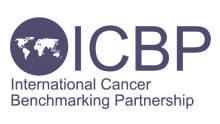
International Benchmarking of Childhood Cancer Survival by Stage
The International Benchmarking of Childhood Cancer Survival by Stage project (BENCHISTA) aims to improve understanding of the reasons for variation in childhood cancer survival between countries and to highlight areas that need to be targeted for improvement.
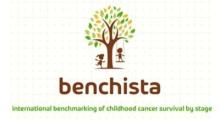
European Network of Cancer Registries (ENCR)
NCRI is a member of the Steering Committee of the European Network of Cancer Registries (ENCR) which promotes collaboration between cancer registries, defines data collection standards and disseminates information on incidence and mortality from cancer in the EU and Europe.
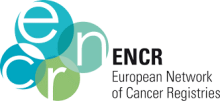
OriON
The OriON Joint Action aims to support the Cancer Inequalities Registry in identifying trends, disparities and inequalities in cancer prevention and care between and within EU States and regions. It's aim is to reduce disparities in cancer prevention and care across the EU.

European Cancer Information System (ECIS)
The European Cancer Information System (ECIS) provides the latest information on indicators that quantify cancer burden across Europe. It permits the exploration of geographical patterns and temporal trends of incidence, mortality and survival data across Europe.
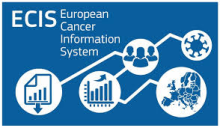
Comprehensive Cancer Infrastructure for Europe (CCI4EU)
Comprehensive Cancer Infrastructures for Europe (CCI4EU) is a European initiative aiming to help member states and associated countries to rethink the cancer culture at all levels.

CancerWatch
CancerWatch is a new EU Joint Action designed to transform how Europe collects, harmonizes, and uses cancer data. Coordinated by the Norwegian Institute of Public Health and involving 92 partner organisations from 29 countries, CancerWatch will enhance the quality, comparability, and timeliness of data from population-based cancer registries (PBCRs) across Europe.
European cancer registries, including the National Cancer Registry Ireland (NCRI), are central to the CancerWatch project, as we will provide data, implement new digital tools, and adopt harmonized standards to improve the quality, completeness, and timeliness of cancer surveillance across Europe.
